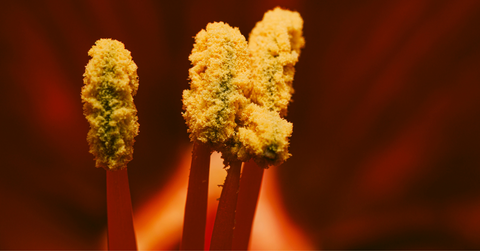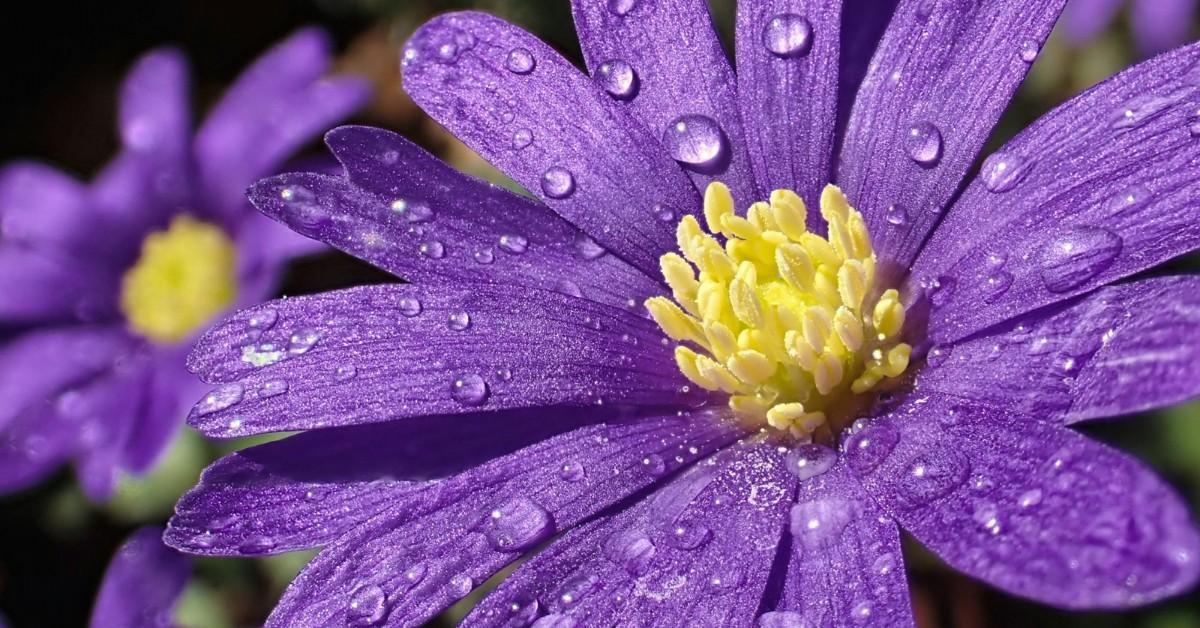Can a Good Rainfall Ease Your Pollen Related Allergies?
Don't stary wishing for a good rainstorm to come and wash the pollen away quite yet.
Published April 9 2025, 9:20 a.m. ET

Watery eyes, itchy throats, runny noses — these are all symptoms of seasonal allergies, which can be brought on by excessive amounts of pollen production, especially during the spring and summer seasons. For those who experience severe allergies, those watery eyes and runny noses can become a huge burden, causing people to seek out new and creative ways to get relief.
And many folks hope that Mother Nature will offer her own reprieve in the way of a good storm to wash all of the pollen away.
However, there are some who would caution against hoping that a good rainfall will help eliminate your symptoms, making many wonder whether rain makes pollen worse.
According to the experts, the truth of the matter lies somewhere in the middle. Keep reading to understand what we mean and what you need to know about the effect rain has on pollen.

Does rain make pollen worse?
Many people pray for rain at the height of allergy season because they believe that a strong rainfall will help wash loose pollen away, clearing the air a bit. However, according to The Weather Channel, the improvement many people feel after a rain is only temporary. To understand why, you'll need to look at the physics of what happens to pollen after it rains.
The precipitation in the air, whether it be the actual raindrops falling from the sky or the humidity left behind after a shower, weighs more than the airborne pollen particulates. This allows the water to push the pollen down, removing the pieces from the air so you can breathe a bit easier. However, once the rain stops, and the humidity evaporates, you can loose that temporary relief.
And what's worse, the rain may actually cause things to get worse in the long run.

That's because a good rainfall can also spark more growth from plants, causing them to sprout new pollen laden growth. And, when you're already in the middle of a tough allergy season, the increased pollen count could be the very last thing your weary sinuses want to deal with!
Why do you get congested when it rains?
Knowing that rain has the potential to clear pollen from the air, you may wonder why you start to feel more congested once the storm starts. According to the Cleveland Clinic, this has to do with the way that some pollen grains are changed when they come into contact with the rain.
Some droplets can actually cause the pollen grains to explode, releasing even more allergy-inducing particles into the air. These can then be inhaled by allergy sufferers, causing symptoms to flare up.
Not only that, but the Asthma and Allergy Foundation of America says that rain can even increase pollen counts in certain cases, especially when it comes to weeds and grass.
That's because the rain drops help spread the pollen clumps around, which is more apt to happen during those heavier downpours and storms.